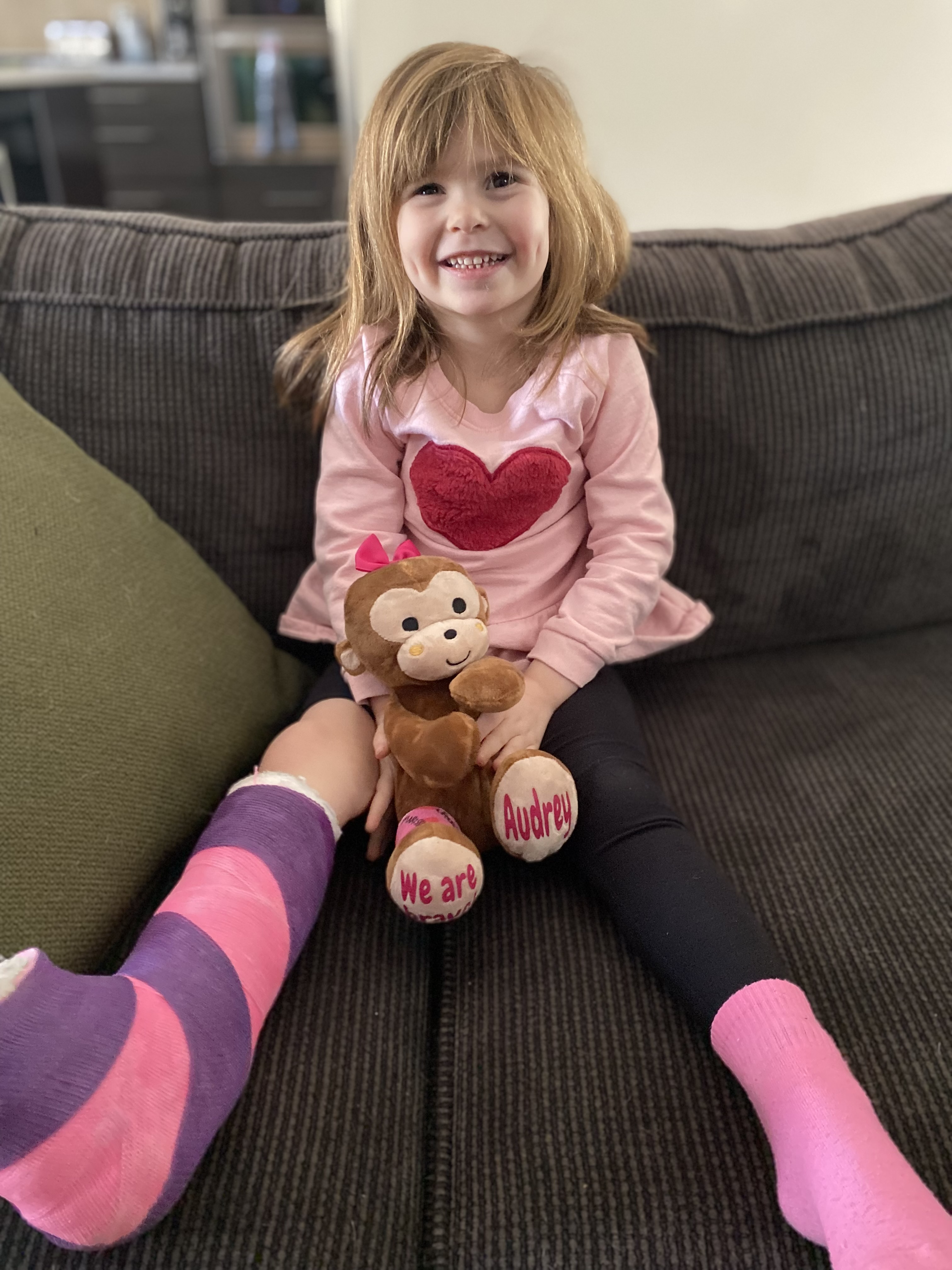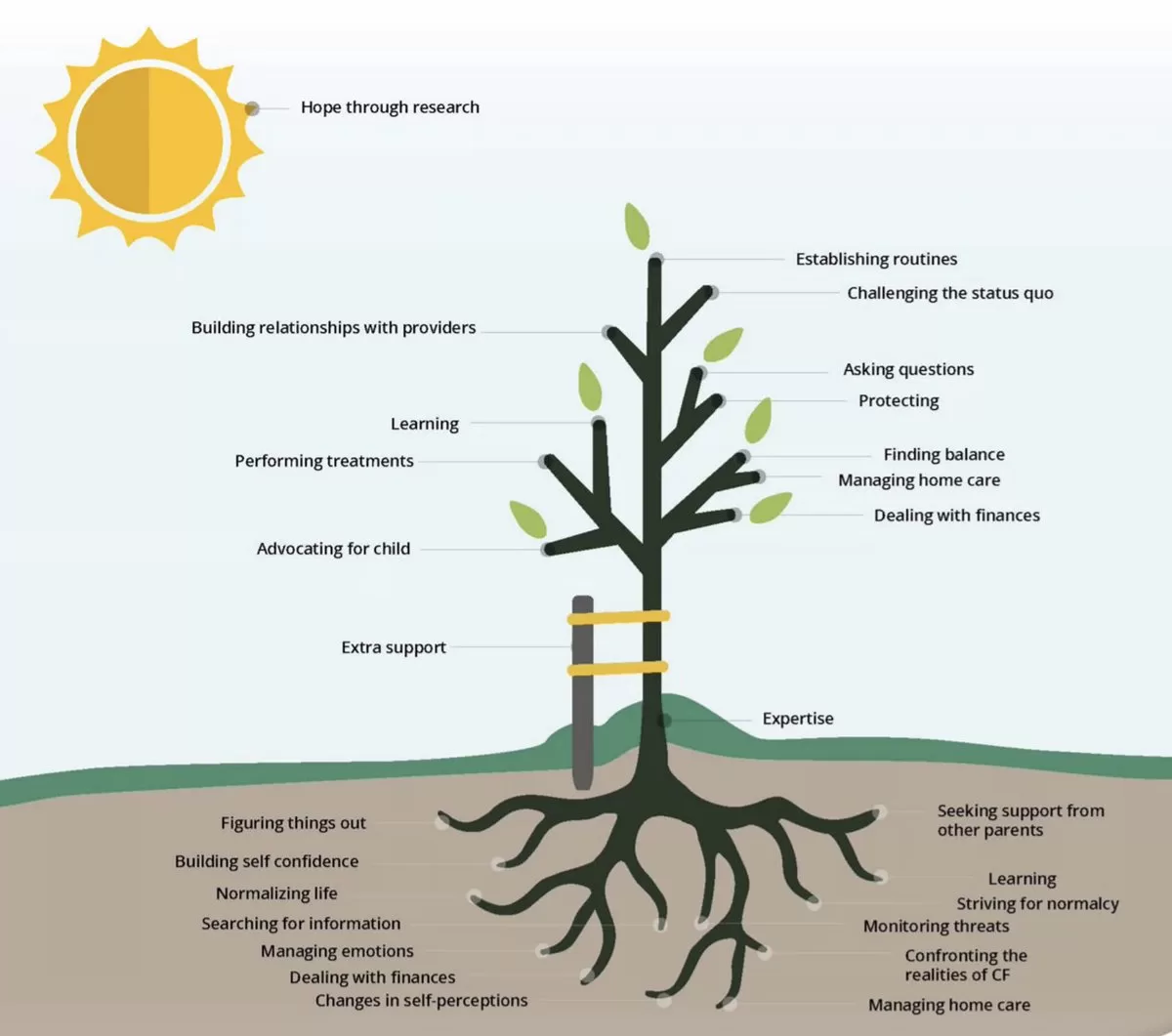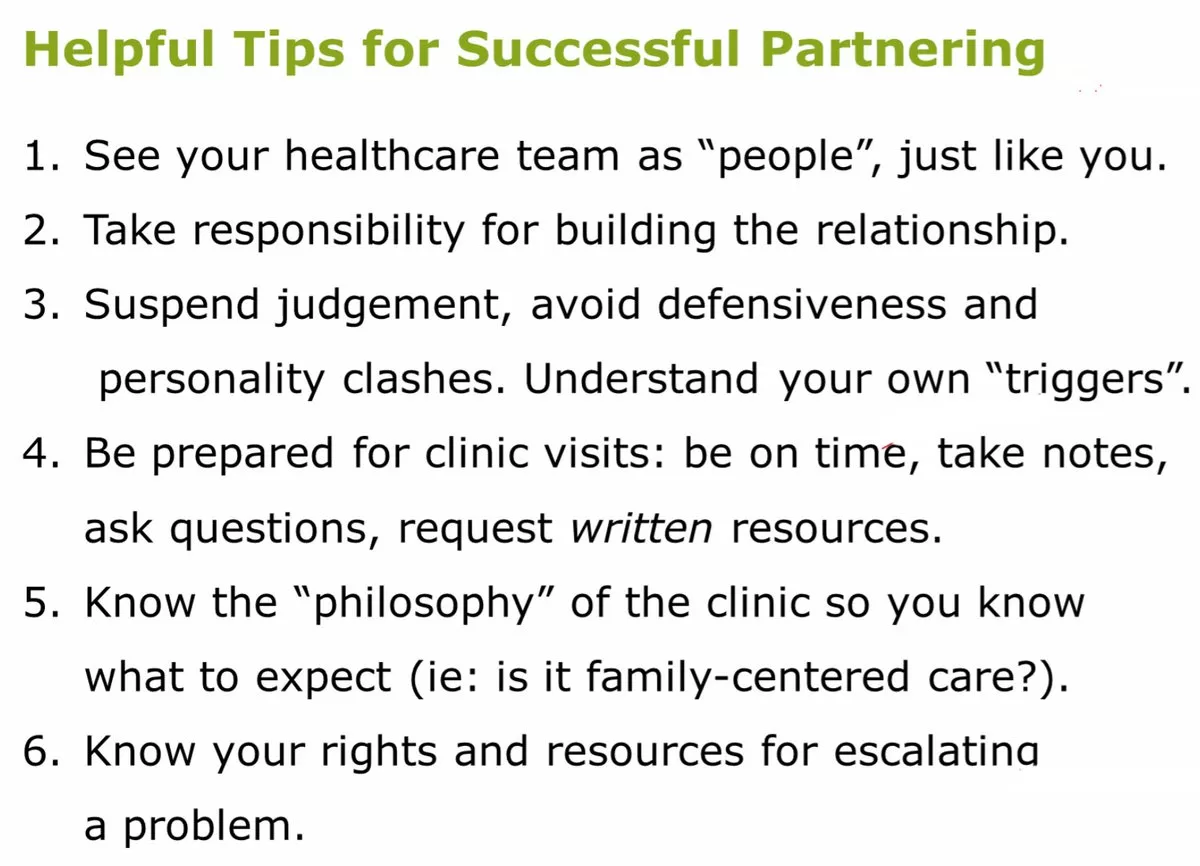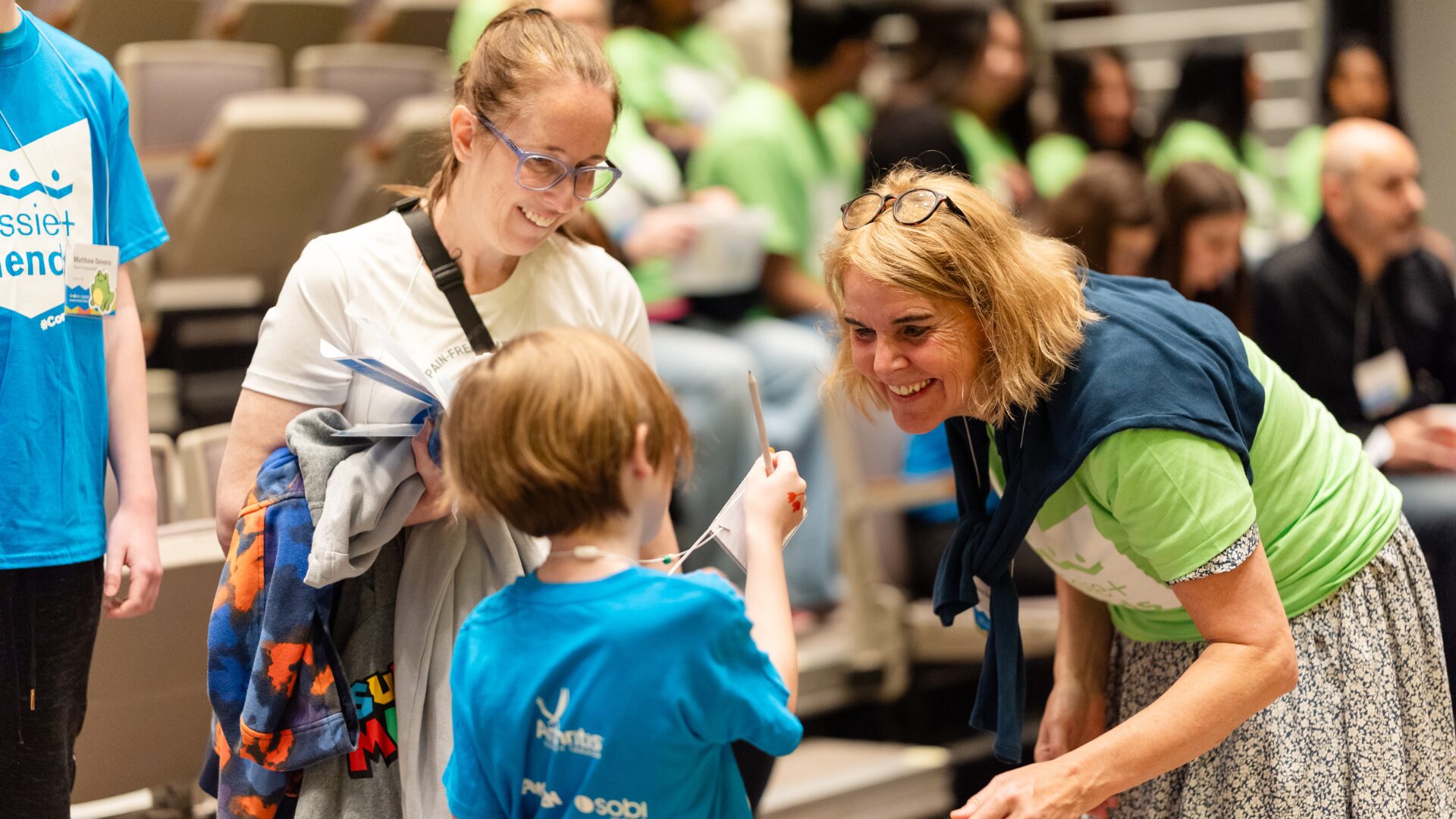building strong relationships with your healthcare team
You know the saying “it’s not what you know, it’s who you know”
It’s true. Connections can make all the difference. Finding a strong community of support and building healthy relationships with your child’s healthcare team are critical to successfully navigating life with JA/childhood rheumatic disease.
That’s why we hosted our ‘Vital Connections’ webinar. This masterclass on all things relationships was kicked off by JA Mom, Brittany Dieroff, who shared how her daughter’s healthcare team supported her in making tough treatment decisions and why she was inspired to get more involved with the Cassie + Friends community locally. We then heard from Certified Family Life Educator and Parent Coach, Lisa Greene who spoke about the ‘how’s’ and ‘why’s’ of cultivating strong relationships with your pediatric rheumatology team.
Joining the live Q+A were Heather Ross, Pediatric Nurse at McMaster Children’s Hospital, and Victoria Molnar, Registered Social Worker at the Glenrose Rehabilitation Center (Stollery Children’s Hospital) who helped us to answer family questions about their rheumatic disease journey, making this one of our most successful sessions to-date!
webinar recording
Lisa Greene – Certified Family Life Educator & Parent Coach, Author
Lisa is a certified family life educator, certified parent coach and (most importantly) MOM! And, as a parent of two children living with chronic illness, Lisa knows the challenges parents and caregivers may face.
Since 2004, she has worked with Foster Cline MD, a well-known child psychiatrist and co-founder of the popular Love and Logic parenting program. Together, they have created several new Love and Logic resources including the award-winning book Parenting Children with Health Issues and the DVD Parenting Children with Special Medical Needs: Love and Logic Tools for Raising Resilient Kids. Lisa presents workshops to hospitals and non-profit organizations throughout North America and through her sessions, parents walk away with a lighter step and simple, practical parenting tools. Lisa’s message is: “You can do it!”
Brittany Dieroff – JA Parent, Edmonton, AB
Meet Brittany Dieroff, a mom whose journey into the world of Juvenile Idiopathic Arthritis (JIA) began with the diagnosis of her daughter at just 18 months old. Despite her background as a Respiratory Therapist, Brittany found herself navigating unfamiliar territory, working to understand the nuances of this challenging disease. Over the last few years, with the help of Cassie + Friends, she has gained valuable insights that have reshaped her perspective both personally and professionally. As a Parent Ambassador for Cassie + Friends in Edmonton, she is committed to raising awareness and support for those affected by juvenile arthritis.
Heather Ross – Pediatric Nurse, McMaster Children’s Hospital, Hamilton ON
Heather Ross is a dedicated pediatric nurse at McMaster Children’s Hospital. She has 16 years of experience working with the pediatric population. And joined the Rheumatology team at McMaster Children’s Hospital in February of 2023. She is passionate about providing compassionate care to young patients with rheumatic diseases and ensuring their comfort and well-being throughout their journey.
Victoria Molnar – Registered Social Worker, Glenrose Rehabilitation (Stollery Children’s Hospital), Edmonton, AB
Victoria has been working with a multi-disciplinary team in Pediatric Rheumatology, Brain Injury and SROP clinic at the Glenrose Rehabilitation Hospital in Edmonton, AB for 8 years. She has supported families as a Social worker for 19 yrs with Alberta Health Services.
Victoria is a mom of 2 girls and serves in many volunteer positions to better lives in her community. She has a heart for helping grieving families and on mission to advocate for connections to help support them.
Video Timestamps:
Introduction – 00:00:00
Question Poll 1 – 00:02:16
Question Poll 2 – 00:05:31
Brittany Dieroff Presentation – 00:09:12
Lisa Green Presentation – 00:27:21
Q&A Guest Panelists Introduction – 01:08:28
Q 1 – Answered by Victoria Molnar – 01:09:09
Q 2 – Answered by Lisa Green and Heather Ross – 01:11:57
Q 3 – Answered by Heather Ross – 01:16:31
Q 4 – Answered by Brittany Dieroff and Victoria Molnar – 01:18:10
Q 5 – Answered by Victoria Molnar – 01:22:28
Q 6 – Answered by Heather Ross – 01:25:05
Q 7 – Answered by Heather Ross, Lisa Green, Victoria Molnar, Brittany Dieroff and Yoanna Vadim – 01:26:45
Q 8 – Answered by Marissa – 01:37:06
Conclusion – 01:38:47
Newly Diagnosed Resource Page – Is your family just beginning your rheumatic disease journey? Visit our Newly Diagnosed resource page to learn about key steps you can take to set yourself/your child up while navigating life with a new diagnosis.
JIA 101 Webinar – Check out our JIA resource page for an introduction to JIA, its subtypes, treatments, medications and more!
Caregiver Self-Care – As you care for your child, you can’t forget to care for yourself! Click HERE to watch the recording of our ‘Putting on Your Life Jacket: Self-care for Caregivers’ workshop where you will learn how to get in touch with your emotions, the role of the grief cycle in chronic illness, how to cope with stress, and more!
key session takeaways

In this session, Brittany Dieroff shared her experience of making a difficult decision regarding her daughter Audrey’s (pictured on the left) need for surgery on her ankle due to JA complications. The decision was challenging, especially considering Audrey’s young age and active lifestyle. After consulting with medical professionals and support groups like Cassie + Friends, their family proceeded with the surgery and it has been a success!
Brittany emphasized the importance of meticulous note-taking, strong relationships with your healthcare team and leaning on a community of support throughout the decision-making process.
Brittany’s ‘top tips’ for making difficult treatment decisions:
1. Document: Detailed records of symptoms, medical appointments, and treatments proved invaluable for Brittany. She encourages parents to document everything, including questions for healthcare professionals, which can help facilitate discussions and decision-making during appointments. A running Google document or note on your phone can be helpful.
2. Advocate: Brittany stressed the importance of advocating for your child’s health. If something feels wrong, she says, parents should not hesitate to seek medical attention and advocate for proper diagnosis and treatment.
3. Access Resources: Brittany recommends utilizing resources and support groups such as Cassie + Friends. These groups provide valuable support, information, and connections with other families navigating similar journeys. You don’t need to start from scratch or go through this alone!
4. Share Your Story: Brittany highlights the importance of sharing experiences with others. By sharing your story, parents can educate and support each other while also learning from shared experiences.
Did you know that Social Workers are available to help you build ‘strong connections’ on your journey?
During the initial meeting with new families at the clinic, the social worker’s primary goal is to evaluate the family’s situation and needs. This involves examining the dynamics within the family unit and identifying potential triggers or issues that may affect the child’s well-being. A significant emphasis is placed on providing support and assistance, particularly regarding medication coverage, which can be a major concern for families. The social worker takes a collaborative approach, working closely with the healthcare team to ensure ongoing support and care coordination. While the medical team focuses on the child’s medical needs, the social worker addresses broader familial and psychosocial aspects, ensuring comprehensive care for the child and their family. To learn more about the role of a social worker in your child’s care and how to access their services, consider inquiring at your next clinic visit.
Lisa Greene, in her presentation, draws on her experience as a Certified Family Life Educator, Parent Coach, Author and ‘Mom’ to two children with Cystic Fibrosis. She provides valuable insights into managing chronic illness and building collaborative relationships with healthcare providers and offers practical advice for nurturing these vital connections, some of which are summarized below:


Tree Metaphor
Lisa skillfully employs a poignant metaphor of trees to illustrate the complex layers of managing chronic diseases. She compares the unseen roots of a tree to the hidden social processes and emotions experienced by families dealing with illness. Through this metaphor, she emphasizes the importance of educating healthcare providers about the nuanced challenges faced by families. Additionally, she highlights the value of sharing a comprehensive picture of one’s child and family experiences with healthcare providers to deepen connections and provide insight into the impacts of treatments.
Partnership in Care
Lisa promotes a collaborative approach to care, highlighting the significance of actively participating in decision-making and care planning. She encourages families to openly and persistently communicate their child’s needs and preferences. Lisa also stresses that there are no “bad” questions or too many questions, but advises being organized and strategic about how and when to ask them. Not sure what questions to ask? Try asking your healthcare team what they think you should be asking them, to have them consider the situation from your perspective.
Keeping Yourself in Check
Reflecting on personal experiences, Lisa discusses both positive and negative interactions with medical professionals. She underscores that positive interactions are rooted in respect. Lisa acknowledges that feelings of frustration or fear are natural when dealing with chronic diseases, but she stresses the importance of self-regulation, before and during interactions with healthcare professionals. This means being mindful of one’s body language, tone of voice, and word choices before and during interactions with healthcare professionals. Recognizing the humanity of the healthcare provider is essential. Cooperation and functional partnerships in care, she notes, rely on kindness, good manners, openness, and empathy.





